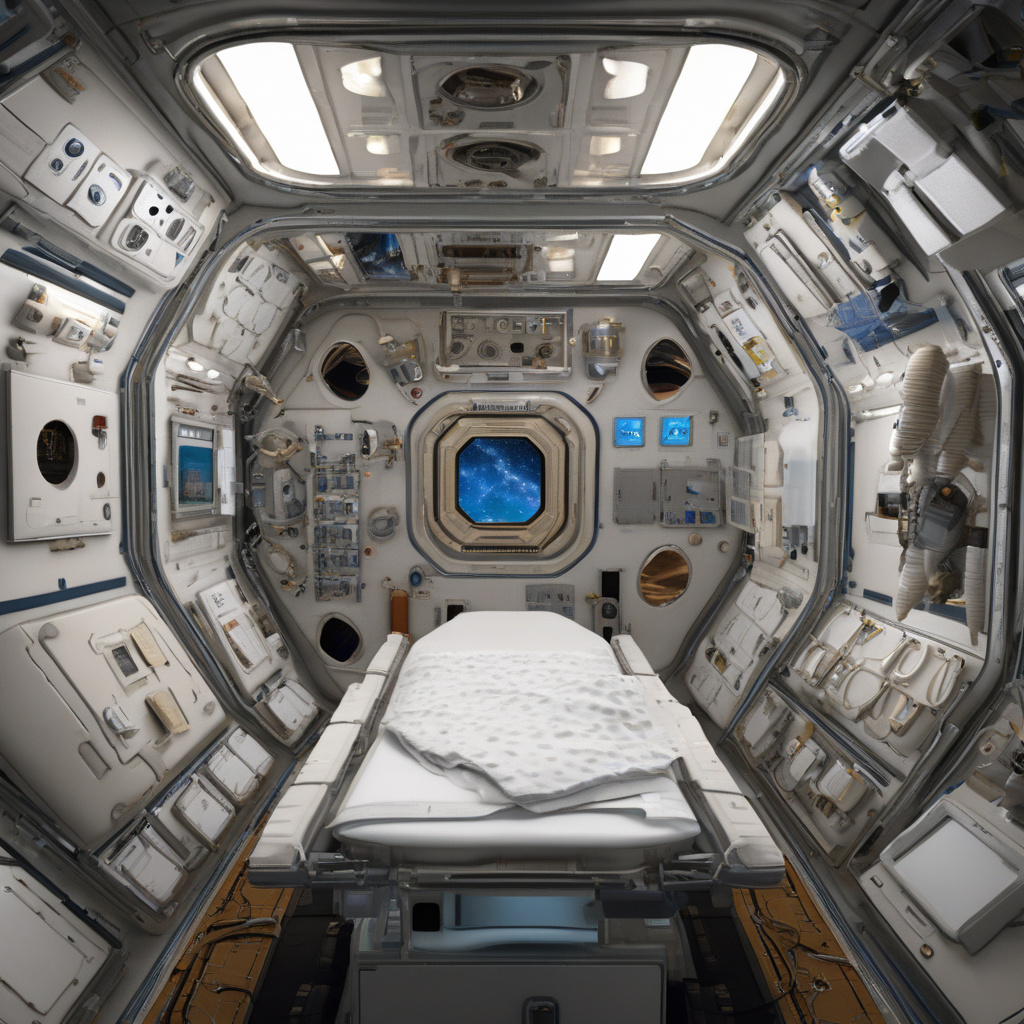In the vast expanse of space, where humanity’s reach extends beyond the boundaries of Earth, the International Space Station (ISS) stands as a beacon of scientific progress and human ingenuity. However, beyond its technological marvels and breathtaking views of our planet, the ISS holds a fascinating secret that has recently come to light – it is nearly as microbe-free as an isolation ward. The revelation comes from the largest study conducted on the ISS’s microbes, shedding light on the delicate balance between cleanliness and microbial diversity in space.
The ISS, a marvel of international cooperation and engineering, is meticulously maintained to ensure the health and safety of its crew. Regular cleaning routines and stringent protocols are in place to minimize the presence of microbes that could potentially harm astronauts or compromise the station’s sensitive equipment. However, the latest study suggests that we may have been overzealous in our quest for cleanliness, inadvertently creating an environment that lacks the microbial diversity necessary for a healthy ecosystem.
The study, which analyzed samples collected from various surfaces on the ISS, revealed a surprisingly low abundance of microbes compared to similar indoor environments on Earth. In fact, the microbial composition of the ISS was found to be comparable to that of an isolation ward, where patients with highly compromised immune systems are housed to prevent infections. While this may seem like a positive outcome at first glance, it raises important questions about the potential consequences of maintaining such a sterile environment in space.
Microbes play a crucial role in maintaining the balance of ecosystems, both on Earth and potentially in space. They contribute to various biological processes, including nutrient cycling, waste decomposition, and even the regulation of immune responses. By reducing the diversity of microbes on the ISS, we may be inadvertently disrupting these delicate ecological processes, which could have unforeseen consequences for long-term space missions and the health of astronauts.
Moreover, the lack of microbial diversity on the ISS could have implications for the health of its crew. Studies have shown that exposure to a diverse range of microbes is essential for the development and regulation of the human immune system. By depriving astronauts of this microbial exposure, we may be putting them at risk of immune dysregulation and other health issues during their time in space.
So, what does this mean for the future of space exploration? It suggests that we need to strike a balance between cleanliness and microbial diversity on spacecraft like the ISS. Rather than aiming for complete sterility, we should focus on creating environments that support a healthy and diverse microbial community, much like the ecosystems we find here on Earth. This could involve implementing new cleaning protocols, introducing beneficial microbes into the spacecraft, or even designing habitats that mimic natural environments to encourage microbial growth.
In conclusion, the recent study of the ISS’s microbes serves as a reminder of the intricate relationship between humans and the microbial world, even in the extreme conditions of space. As we continue to push the boundaries of exploration and venture further into the cosmos, we must not forget the importance of maintaining balance and diversity in all ecosystems, including those beyond our planet. The ISS may be nearly as microbe-free as an isolation ward, but perhaps it’s time to let a little bit of nature back in.

